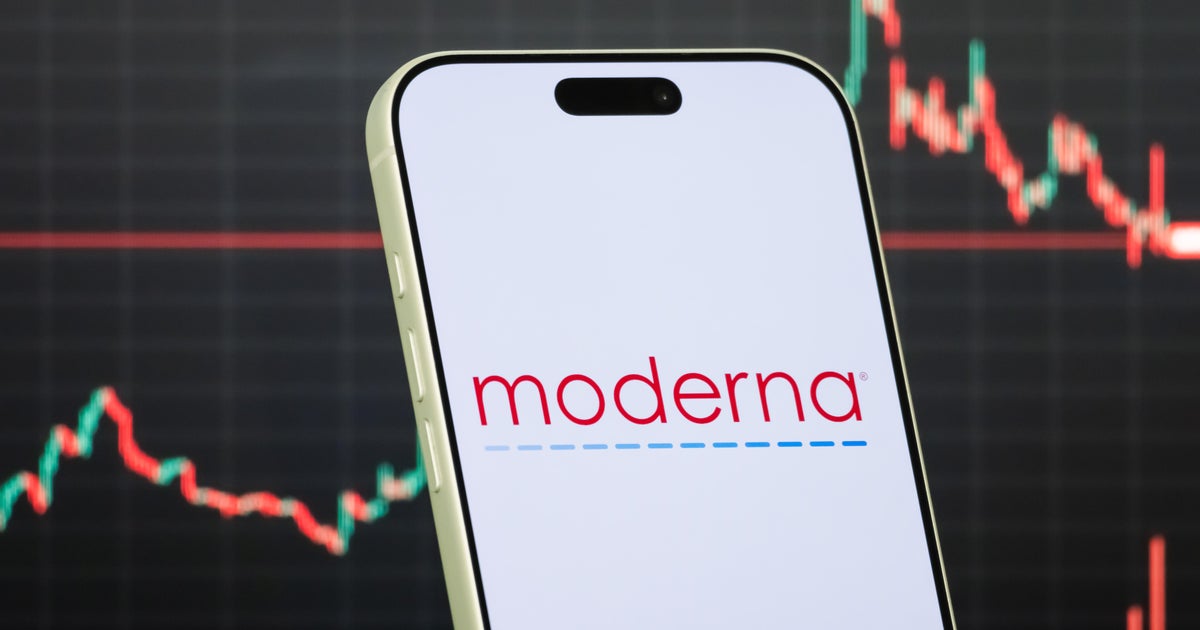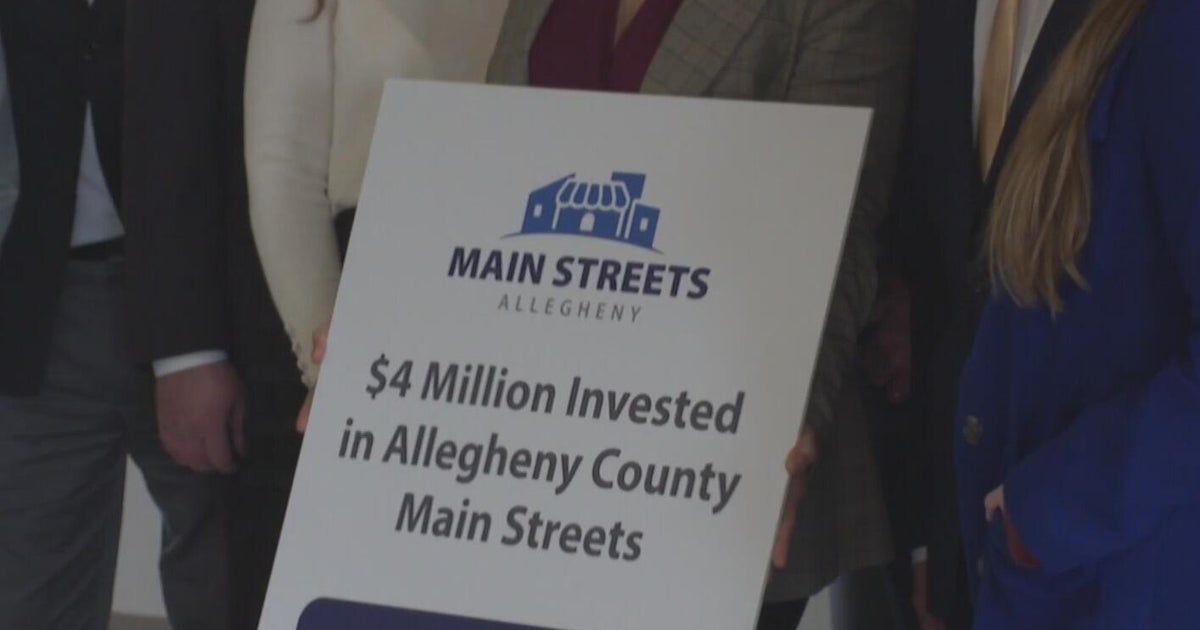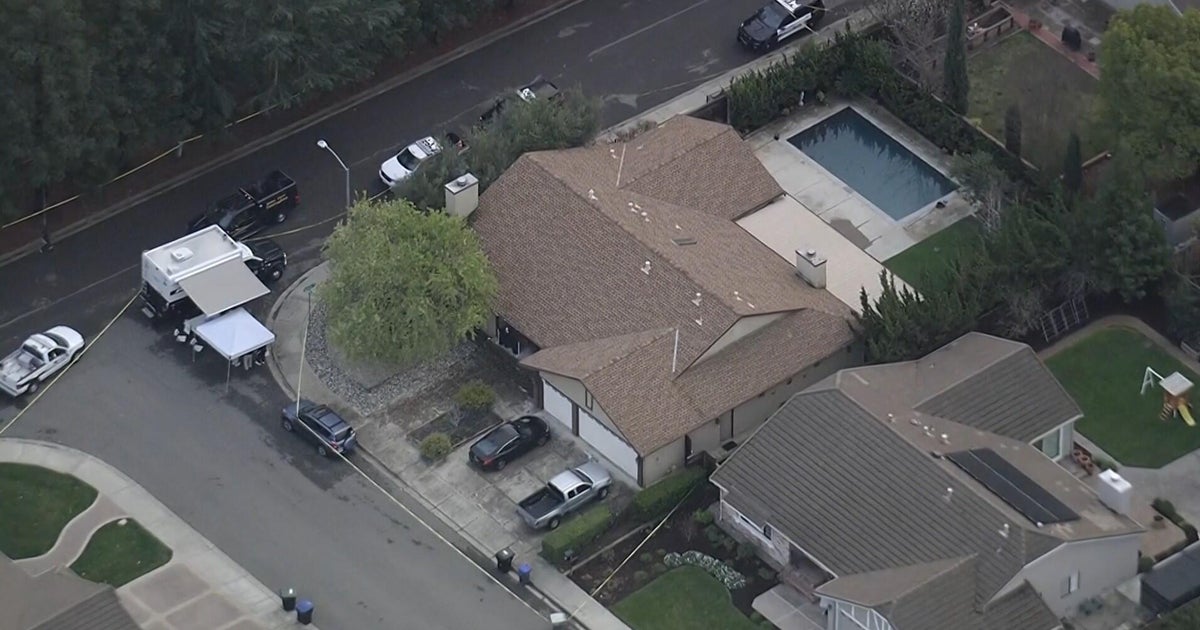FDA grants emergency use authorization for Moderna and Johnson & Johnson's COVID vaccine booster shots
The FDA on Wednesday granted emergency use authorization to vaccine booster shots from Moderna and Johnson & Johnson, clearing a key regulatory hurdle for millions of Americans looking to boost their protection against COVID-19. Adults can now also "mix and match" their booster shots, the FDA said, and do not have to get an additional dose from the same brand that first vaccinated them.
Like with Pfizer's vaccine, the FDA is authorizing a third Moderna shot for many adults vaccinated at least six months ago. Those eligible for the booster shot include all seniors 65 and older, adults who are at "high risk of severe COVID-19" and adults with frequent exposure to the virus because of where they live or work.
Regulators are also allowing all 15 million adult recipients of Johnson & Johnson's COVID-19 vaccine to receive a second dose at least two months after they were first vaccinated, regardless of their personal risk. Ahead of the decision, the FDA's scientists had said that the highest estimates of vaccine effectiveness from the single-shot vaccine were "consistently less" than from Pfizer or Moderna.
"Given the difference in the vaccines and their regimens, we have tried to keep this as uniform as possible," acting FDA Commissioner Janet Woodcock told reporters on Wednesday. "But it was not possible to have it totally uniform because we're dealing with different vaccines that have different series."
The authorization comes ahead of a meeting of the Centers for Disease Control and Prevention's Advisory Committee on Immunization Practices, which is scheduled to discuss recommendations for use of the additional doses on Thursday. Under federal supply agreements, vaccinators must still wait for the CDC to formally recommend use of the booster shots before they can be administered.
"ACIP really can't expand or be broader than FDA conditions of use. However, we can be more narrow. So for example, FDA could go down on age, and ACIP would not have to. But, if FDA does not change and go down on age, ACIP could not address it," the CDC's Dr. Amanda Cohn told an FDA meeting last week.
More than 9 million Americans have already received a booster shot from Pfizer, according to the CDC. Only around 1.7 million have received a third dose of Moderna's vaccine, which is currently allowed only for some immunocompromised Americans.
The CDC's vaccine advisers are also expected to deliberate on refining guidance around "heterologous" booster shots — mixing and matching people first vaccinated against COVID-19 from one brand with an additional dose from another.
Heterologous boosting for COVID-19 appears safe with no unusual side effects, based on data gathered from mixing and matching other vaccines and early results from a trial led by the National Institutes of Health that studied combinations of Pfizer, Moderna, and Johnson & Johnson.
That NIH study also found the lowest increases in neutralizing antibodies from booster shots of Johnson & Johnson's vaccine, though the study's authors cautioned their trial was "not designed to directly compare responses" and had yet to finish measuring other parts of the body's immune defenses that are boosted by vaccination.
"We want to provide a lot of flexibility because some people don't know what vaccine they got, in certain circumstances," Woodcock said. "There are people who don't know, there are people who do not want to get the same vaccine as they got before because they had some sort of reaction."
While the CDC has historically hewed closely to the ACIP's recommendations, the agency is not bound to follow the committee's votes. CDC Director Rochelle Walensky last month signed off on guidance for Pfizer's booster shots that went beyond the committee's vote.
"I think that Dr. Walensky made a very good, informed, and, I thought, courageous choice in modifying a bit. She took the advice of the committee under advisement, and she made a modification," Dr. Anthony Fauci told a virtual event hosted by The Atlantic last month.
Walensky broadened eligibility for Pfizer's booster shots to adults who were at increased risk because of where they lived or worked, shocking some of the CDC's outside advisers after a majority of the panel had previously voted to reject similar language.
FDA officials said Wednesday the agency was still weighing whether to expand eligibility for booster shots for younger adults, given concerns over potential side effects like myocarditis and pericarditis, which are rare and seen largely in younger men.
"We may well get there. It's a matter of having the data and ensuring that when we make that decision, the benefits clearly outweigh the risks throughout the population," Dr. Peter Marks, the FDA's top-ranking vaccines official, said.
While the unvaccinated remain vastly more likely to be hospitalized or die from COVID-19, CDC data suggests the vaccine's protection against infection has declined -- raising the risk of new variants that could fuel future waves of the virus and spread of the disease to vulnerable groups, like unvaccinated children or the immunocompromised. It's not yet clear exactly why vaccine effectiveness is waning, though federal health officials have cited the Delta variant and time since vaccination as among the reasons that could be driving a drop in protection.
It is also unclear how much of the data underlying Wednesday's decision by the FDA has been vetted by the agency. Some of the FDA's outside vaccine advisers raised concern last week over the issue, with agency officials saying they could be "months" away from finishing their independent verification of the data submitted by Johnson & Johnson.
An FDA spokesperson did not respond to a request for comment.
Federal health officials have also cited fears over the fallout from even mild cases of breakthrough COVID-19 for fully vaccinated people, ranging from blood clots to "long COVID" symptoms that can linger for months after infection.
"It is an assumption, that it is okay to get infected and to get mild and moderate disease, as long as you don't wind up in the hospital and die. And I have to be open and honest, I reject that. I think we should be preventing people from getting sick from COVID, even if they don't wind up in the hospital," Fauci said at the Atlantic event.



